Civil Society Engagement
We believe that civil society is at the core of transformative and sustainable change.
The Spotlight Initiative’s work is rooted in research that amplifies the belief that the leadership and deep engagement of civil society is at the core of transformative and sustainable change in the elimination of violence against women and girls. Civil society, in particular women’s rights and feminist activists and movements, is therefore a central and paramount partner of the Spotlight Initiative. This includes those representing groups facing intersecting forms of discrimination.
Spotlight Initiative’s partnership with civil society is guided by:
- A human-rights based approach
- The “Leaving No One Behind” principle, and
- National ownership
Civil Society Reference Groups
“To be a part of this group has been an important space of learning and has enabled us to strengthen our links and relationships.” - National Reference Group member, Argentina
Civil society is systematically engaged at national, regional and global levels through the partnership with Civil Society Reference Groups. The Reference Groups represent civil society at the governance and decision-making bodies of the Initiative and aims to advise the Initiative, to advocate for the realization of its objectives and to hold the Initiative accountable for its commitments.
At the Global level, the Civil Society Reference Group is comprised of 20 diverse members, selected by a civil society-led selection committee in April 2019.
Toolbox: Reference Group members can find relevant resources, templates and guidelines here.
Please find the biographies of the Global Reference Group members below.
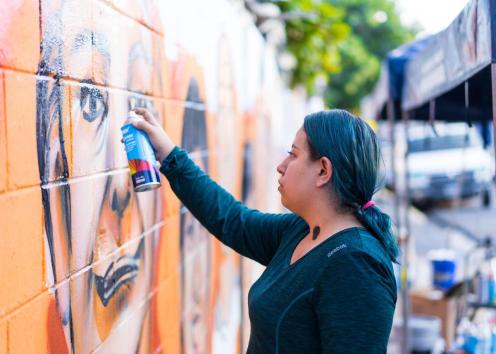
Civil Society Funding Dashboard
Civil Society Global Reference Group Members
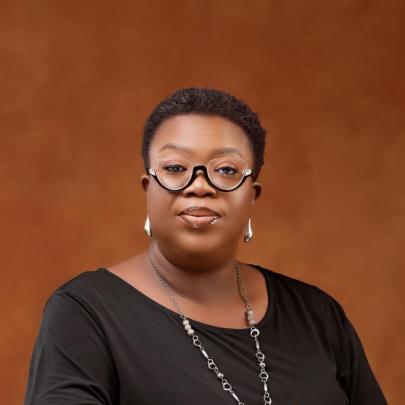
Dr. Abiola Akiyode-Afolabi is a feminist scholar and the Director of the Center for Human Rights, University of Lagos. She is also the founder of the Women Advocates Research and Documentation Center (WARDC). Through the organization, she has contributed to several interventions towards the elimination of violence against women and girls (EVAWG) in the region. She specializes in international human rights, comparative constitution, gender and the law in Africa.
Abiola’s work has contributed immensely to the women’s movement's ability to address sexual and gender-based violence in Nigeria. She led the passage of several laws and policies to comprehensively address violence against women in Nigeria and pioneered the adoption of the Costed Model Action Plan for ending gender-based violence in more than six states in Nigeria between 2021-2023. Through these efforts, about three states in Nigeria have adopted budgets to end violence against women and girls. She works with women in conflict zones and has supported projects that have impacted policies, particularly in the area of accountability and safety of girls and boys in schools. Her work has led to the adoption of the First National Policy on Safe and Secure Schools in Nigeria.
Abiola works with vulnerable and marginalized groups, particularly sex workers, returnees, migrants, women and girls with disabilities, and rural women to strengthen their voices and participation and to support advocacies for inclusion to end violence against them.
As a human rights attorney, she has filed cases locally and internationally challenging practices and laws discriminatory against women. She has appeared before local and regional bodies to challenge the restrictions on sexual rights and health rights in sub-Saharan Africa. Abiola supports legal aid for women and through her organization, benefitting over 850 women annually.
As an academic, she has written several publications examining the violence women suffer in complex, multi-ethnic African societies. Abiola gained her first degree at the Obafemi Awolowo University, her Masters of Law in International Human Rights Law from the University of Notre Dame Law School, USA and did her Ph.D. at the University of London. She has won several awards locally and internationally. Most recently, she was recognized as an outstanding leader by the United Nations, UNDP, U.S. Embassy, U.K. Embassy and German Embassy in Nigeria in March 2023. She was recognized for her work on policy transformation by the Lagos State Domestic Violence Agency and PLAN International in Nigeria.
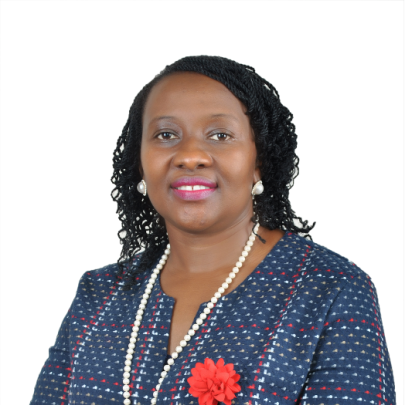
Dorah Kiconco Musinguzi is a Senior Technical Advisor and Coordinator at What Works to Prevent VAWG, Raising Voices. She was Chairperson of the Spotlight Initiative Uganda Civil Society Reference Group of Uganda from 2021 to 2023.
Dorah is a feminist who is passionate about women’s justice and well-being, with 15 years’ experience working in the violence against women and girls (VAWG) prevention field. She is a passionate advocate for every woman and girl, everywhere, and for every human being to realize their potential and dignity.
Dorah is a lawyer and an activist for social change at all levels. She spent 10 years as Executive Director for UGANET, a women’s rights and social justice organization that mobilizes grassroots action for human rights and gender justice. She has led the design and implementation of VAWG prevention programmes from pilot phase to scaling up in diverse communities and contexts. She draws deeply from these experiences to contribute to policy discourse and solidarity with women’s rights organizations leading violence prevention on both global and national levels.
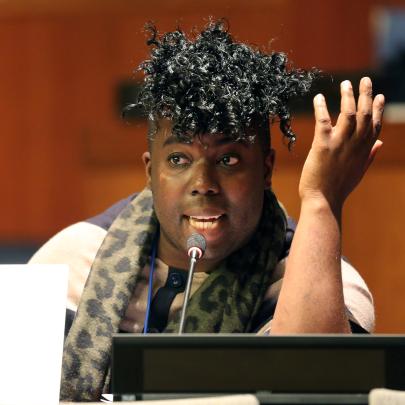
Dumi (they/them/their) is a proudly Pan-African, unequivocally non-binary queer feminist working on eliminating the barriers between grassroots experiences and global policymaking. Dumi is Founder of Success Capital Organisation a youth-, queer-, feminist-led, managed and serving organization working in the nexus of human rights and sustainable development. This includes community health referral services including gender-based violence (GBV) referrals, sexual and reproductive health and rights (SRHR) advocacy, and advancing LGBTI issues at the African Commission on Human & People's Rights, World Bank Spring Meetings and United Nations in Geneva and New York. Their work in eliminating period poverty includes donating over 19,0000 sanitary pads amidst the 1.5 year-long COVID-19 state of emergency, influencing the removal of tax on menstrual hygiene products and securing over 6,000 countrywide signatures in a petition submitted before Botswana's Constitutional Review process. They advanced Bodily Autonomy and integrity in rural, underserved and under-resourced communities across Botswana through community dialogues, performing art and storytelling in documentaries linking climate, gender and queer justice issues, and advocating and contributing towards shadow reporting, side events and engagements on universal health coverage (UHC), GBV, LGBTI rights and SRHR at the Commission on the Status of Women, African Peer Review Mechanism, High Level Political Forum and UN General Assembly engagements. Dumi is a trustee of Womankind Worldwide (U.K.) and a steering committee member of the UHC 2030 (Global). Dumi is a two-time Master’s graduate in strategic management and Human Rights respectively, Chartered Global Management Accountant and PRINCE2 Practitioner.
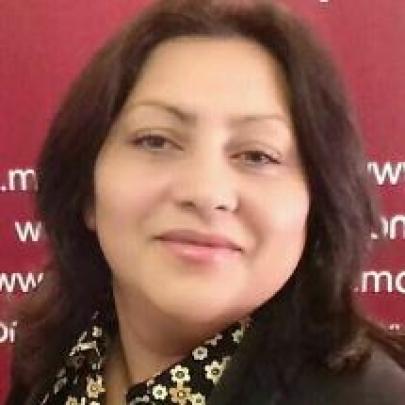
As a human rights defender and President of the Roma Women Platform ROMNI in Moldova, Elena has focused on improving the situation of Roma girls and women—an issue that has increasingly garnered attention both nationally and globally.
Discrimination, segregation, low education levels, lack of employment opportunities, stigma, limited professional qualifications, unequal access to social and health services, violence and the risk of exclusion are just some of the factors that make Roma women one of the most vulnerable and disadvantaged groups. Roma women face multiple layers of discrimination and often confront fears and threats of exclusion or non-acceptance simply because of their community background. The absence of cross-sectoral policies further hinders their inclusion.
The marginalized position of Roma women and girls in Moldova stems from a combination of gender discrimination, racism, social class exclusion and various intersecting factors, alongside a legacy of past exclusion. The main objectives of ROMNI are to address the scarcity of quantitative and qualitative statistics on Roma women, promote inclusive policies, increase political will to implement existing national and international policies, and foster Roma women’s active and visible participation in partnership with international institutions. ROMNI also aims to strengthen Roma women’s involvement in political and social life and empower them towards financial independence.
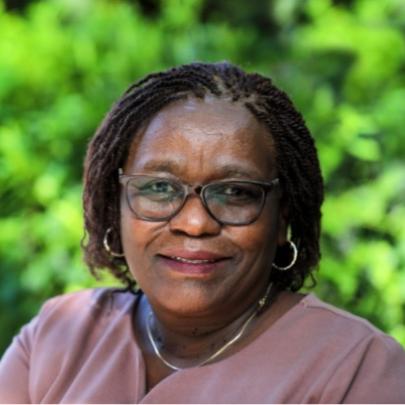
Edinah is a women’s rights activist from Zimbabwe with more than 20 years of experience working on women’s and girls’ rights. Edinah has training in nursing and midwifery. She holds a Bachelor’s Degree in Adult Education and a Master's Degree in Development Studies. Her work focuses on promoting and defending women’s rights in Zimbabwe. Edinah has worked extensively on sexual and reproductive health and rights and gender-based violence issues, and has contributed to the enactment of several laws that promote women’s rights in Zimbabwe. Edinah is the Executive Director of Women’s Action Group, an organization that promotes and defends women’s rights in Zimbabwe. Edinah is an Aspen New Voices Senior Fellow and has written extensively on women’s issues through opinion editorials that have been published in different media. Edinah is also a Women Leaders of the World Fellow. Her passion for uplifting women’s rights is rooted in the feminist theory.
She is a former member of the Civil Society National Reference Group in Zimbabwe.
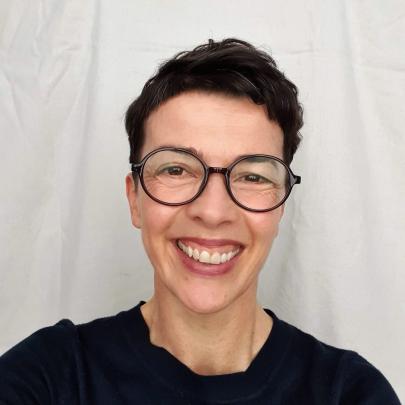
Lara Fergus (any pronouns) is a researcher, activist and writer working to advance collective action, policy and funding for the prevention of gender-based violence and intersectional gender and climate justice. Lara has held a number of leadership roles in civil society organizations: coordinating advocacy for 'more and better' investment in prevention as Co-Director of the Accelerator for Gender-Based Violence Prevention; strengthening the case for the sustainable resourcing of feminist activism as Director of Research, Knowledge and Advocacy at Mama Cash; and leading the co-design of domestic prevention of violence against women frameworks in Australia, as Director of Policy and Evaluation at Our Watch. Lara sees the prevention of gender-based violence as a deeply transformative, necessarily intersectional project -one that is grounded in collaboration, and the translation of learnings from feminist activism and praxis into funded political and institutional action. Author of the award-winning My Sister Chaos, Lara also lives in hope of one day finding the time to finish her second novel.
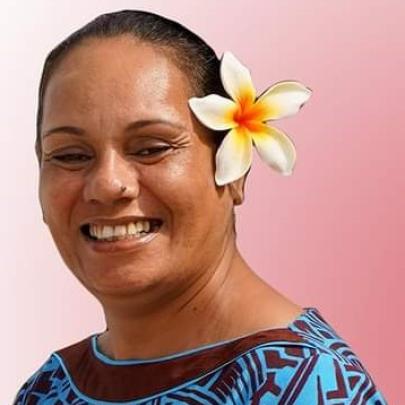
Lemau Palaamo is President, Co-founder and Counsellor for Soul Talk Samoa Trust, a pastoral counselling agency in Samoa. Lemau has facilitated several projects and workshops for Government agencies in Samoa, such as the Ministry of Women, Community and Social Development, Ministry of Justice and Courts Administration, Ministry of Police, Ministry of Health and the Ombudsman Office. In addition, Lemau facilitates projects and workshops with non-government organizations including Samoa Cancer Society, Talofa Kids and Samoa Umbrella non-governmental organization (SUNGO), to name a few. Lemau is a member of the International Association of Counselling (IAC) and Director of the Christian Counsellors Association of Samoa Trust. She is a strong advocate against violence against women girls and children, and an expert in child protection and child safeguarding.
Lemau has facilitated staff and team-building retreats for the United Nations Food and Agriculture Organization (FAO) as well as the United Nations Educational, Scientific and Cultural Organization (UNESCO). Lemau and her husband Rev. Dr Alesana Palaamo reside and teach Practical Theology at Malua Theological College. She is a mother of three teenage boys. Lemau has contributed to several books, including for IBRA International Bible Reading Association in its devotional lectionary ‘Fresh from the Word’, as well as CWM Council for World Mission’s Insight quarterly publication. Amidst her various roles, Lemau enjoys playing tennis, gardening, baking and spending time with her family and friends.
She is the former Co-Chair and member of the Civil Society National Reference Group in Samoa.
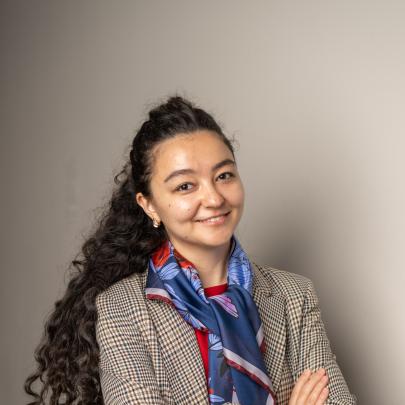
Leyla Zuleikha Makhmudova is a Central Asian gender and security expert, decolonial feminist scholar and community leader with 10 years’ experience in feminist movement building and social entrepreneurship. She spent seven years in professional consulting, advising and expert training for local non-profits, government bodies, international organizations and financial institutions.
She is Founding Strategic Director at FemAgora Central Asian Feminist Organization, and Co-Founding Lead at Central Asia Fund, where she launches and accelerates grassroots-initiated sustainable development of the region. As a survivor of domestic intimate partner violence and an anti-violence activist, Leyla advocates to position survivors as key stakeholders in ending violence against women and girls, anti gender-based violence programmes, and to prioritize holistic security of crisis responders.
Leyla serves on advisory committees of UN Women Kazakhstan, FRIDA Young Feminist Fund, Global Fund for Women and MFA Kazakhstan. She regularly contributes to intergovernmental processes such as Generation Equality Forum, Beijing Platform for Action and the High-Level Political Forum in Geneva. She holds a Bachelor of Arts in Education from Suleyman Demirel University in Kazakhstan and a Master’s degree in Gender, Conflict and Violence from Sussex University funded by Chevening Scholarship. She is currently studying for her Political Science PhD at Johns Hopkins University.
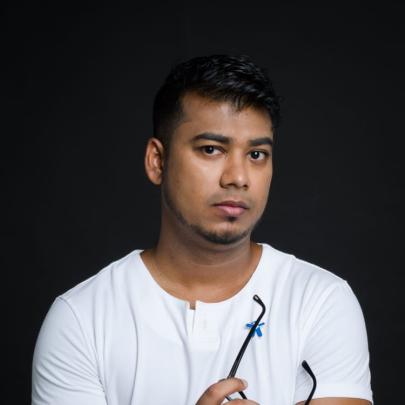
Marcus Kissoon is a dedicated advocate for gender and child justice. He is actively involved in the University of the West Indies (UWI) Break the Silence (BTS) action research and national campaign. Since 2008, he has collaborated with individuals and feminists and is a member of the Caribbean women's movement. His research and activist praxis focuses on Caribbean masculinities, Indianness and their implications for disclosure among male survivors of child sexual abuse. His other areas of expertise include child sexual exploitation, gender-based violence, sex work, HIV and the development and practice of safeguarding policies. Marcus contributed to the 2021 independent investigation of child abuse in State and privately run homes. He was a member of the civil society national reference group in Trinidad and Tobago. He holds a Master of Science in Gender and Development Studies from the University of the West Indies, Trinidad and Tobago, and a Master of Arts in Woman and Child Abuse Studies from London Metropolitan University, United Kingdom. Marcus Kissoon is a Ph.D. candidate in Interdisciplinary Childhood Studies at Rutgers University.
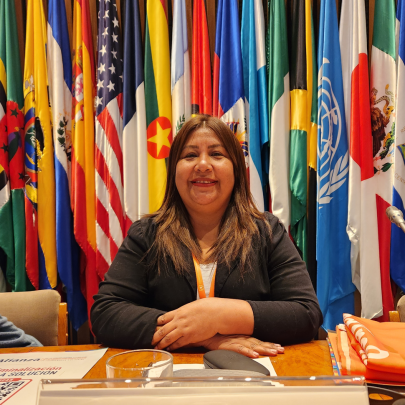
Since 2023, María has served as Executive Secretary of RedTraSex, a transnational network of female sex workers. It is part of the Horizontal Technical Cooperation Group, an integrated platform of governments and regional civil society networks working in the field of HIV/AIDS. She is a member of the Gender Group of the Civil Society Liaison Bureau for the follow-up of the Economic Commission for Latin America and the Caribbean (ECLAC) 2030 Agenda. María is a board member of Frontline AIDS, an organization based in the United Kingdom that operates programmes on HIV/AIDS on five continents. It is part of the LGBTQI+ and sex work coalition that works with the Organization of American States to generate policies and recommendations that protect the human rights of populations. She is currently the Coordinator of the Coalition of Sex Workers in the Americas within the OAS. María coordinates the Alliance for the Defense and Inclusion of the Human Rights of Sex Workers in Latin America and the Caribbean. This alliance is integrated by Amnesty International, International Planned Parenthood Federation, The Foundation for Studies and Research on Women (FEIM), Vecinas Feministas, SYNERGIA, RedLacTrans and RedTraSex, and more than 40 organizations in the region have joined so far. For more than 25 years, this collective has contributed experiences and evidence to support action for the benefit of women and sex workers in particular.
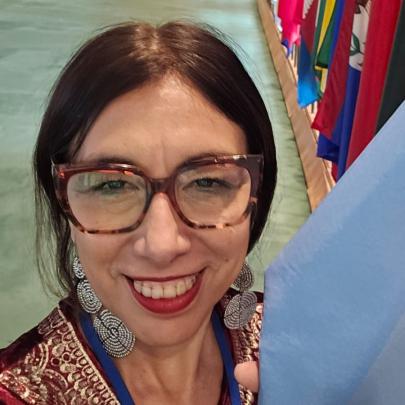
María is a feminist, activist and human rights defender from Argentina. She is Secretary-General of CASACIDN - Argentina Committee for the Follow-up and Implementation of the Convention on the Rights of the Child. María is a lawyer and Professor for the Faculty of Law, University of Buenos Aires (UBA), and a researcher at the GIOJA Institute of the UBA. She specializes in teaching with new technologies, holds a double degree, and is the creator of the Dispositivo de Enseñanza 3.0. Additionally, María is a member of the Gender Equity Commission of the Civil Society of the Argentine Foreign Ministry.
She has extensive experience in training, education and inclusive participation processes, advocacy, monitoring and evaluation of public policies and preparation of shadow reports. She also has experience in public policy management functions with a gender and human rights approach.
Other roles include Academic Coordinator of the Institute of Administrative and Municipal Law of the Bar Association of San Isidro and Ontological Coach specialized in organizational leadership with a gender and human rights approach. She is trained in social psychology with psychoanalytic approach. She has been a member of the Civil Society Reference Group in Argentina since 2018, as well as a Member of the Governance Committee, Monitoring Committee, and a Global and Regional Focal Point. In 2023, she participated in the co-design process of the Civil Society Reference Group at the Global level. She has also participated in regional conferences for ECLAC and OAS, and global conferences for WE RISE 2023 and the 68th Commission on the Status of Women.
Nabeeha serves as president and CEO of PAI. For close to 60 years, PAI has been championing sexual and reproductive health and rights as essential to development progress, including the achievement of health equity, gender equality and human rights. Nabeeha brings more than 25 years of movement building, policy advocacy and community engagement experience in sexual and reproductive health, indigenous community and youth rights, food and nutrition security and conservation. She has dedicated her career to supporting equitable health, social and development outcomes across Asia, Africa, Latin America, and the Caribbean.
Born in Pakistan and raised in Mexico, Nabeeha holds Bachelor’s Degrees in Political Science and Journalism and Mass Communications from Kansas State University and dual Master’s Degrees in International Affairs and Public Health from Columbia University. Nabeeha is based in Washington, D.C.
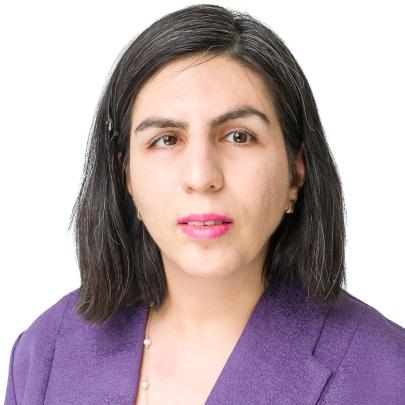
Samaneh is a passionate advocate for women's rights and disability inclusion, bringing a wealth of experience in international law and human rights. She has a proven track record in policy development and legal consultancy, having worked with prominent organizations such as the UNDP and European Disability Forum. Samaneh's work focuses on the critical intersection of gender and disability, particularly addressing violence against women with disabilities. Her academic background, including a Ph.D. in International Law, underscores her deep commitment to justice and equity. Through her career, she has consistently championed inclusive policy-making and the rights of marginalized communities. Samaneh is dedicated to contributing her expertise to the UN's efforts in eradicating violence against women, striving to create a world where every woman, regardless of her abilities, can live free from fear and discrimination.
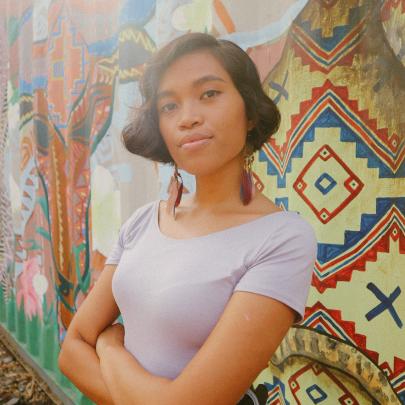
Shamah was born in Dumaguete and raised in Surigao, Philippines and has always had a passion for advocacy and education. Coming from a family of public school teachers, she found herself quite at ease when she was selected as an Adolescent Female Health Peer Educator specializing in Anti-Violence Against Women and their Children for Northeastern Mindanao. There, she was able to find a passion for fighting for girls’ rights, even starting a support group of her own for girls who were victims of abuse. As a queer feminist, she is also a part of the working group that is establishing an ASEAN LBQ Womxn's Network to ensure the rights and protection of the welfare of LBQ womxn in ASEAN. She is the co-founder of the Visayas LBTQ Network, established last year with queer feminist activists from Cebu, Dumaguete, Iloilo and Tacloban. She also serves as a part of the guiding group Transform Education, a feminist coalition of youth-led networks and young activists with a shared mission to accelerate gender equality in education, hosted by the UN Girls Education Initiative.
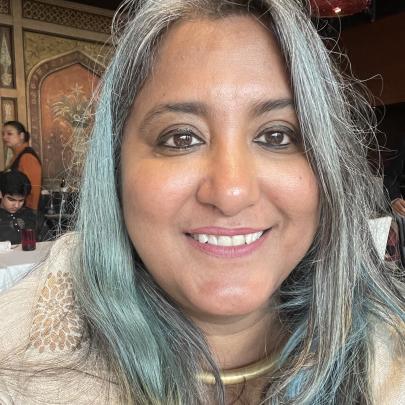
Sohini is the CEO of Breakthrough, an organization focused on transforming gender norms and building the leadership of young people to prevent gender-based violence. Sohini has worked at Breakthrough to build a wide portfolio of supporters and partners since 2010.
Sohini has been working in the development sector for 30+ years. Closely connected to the Women’s Movement in India, she has co-founded a Gender Resource Centre, worked on economic empowerment of women and market-artisan interfaces. Sohini has rich experience in institution-building across South Asia. She was the India strategy advisor for the Asian Venture Philanthropy Network from 2010-2013. Sohini is a founding member of the Coalition for Good Schools - Voices from the South, represents Breakthrough in a flagship programme on What Works to Prevent Violence against women and Girls from UK’s Foreign, Commonwealth and Development Office, and co-chairs the Award Committee for Catalyst 2030, a global movement of social innovators focused on the Sustainable Development Goals.
Sohini is an advisory board member at Ignite Philanthropy, a philanthropic fund that supports bold efforts to ensure every child lives a life free from violence; a board member of The Asian-Pacific Resource & Research Centre For Women (ARROW), a regional women and young people’s organization that has consultative status with the Economic and Social Council of the United Nations; and a trustee of Read India, an organization that sets up self-sustaining community libraries across the country.
When she is not working, Sohini loves to cook for people, watch films and travel. She lives in Gurgaon, India with her daughter; her partner; and Momo, her weird, moody but adorable dog.
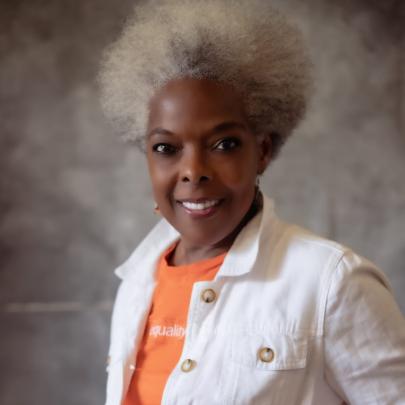
Terry is the founder and convener of CEDAW Committee of Trinidad and Tobago (CCoTT), a UN ECOSOC-accredited volunteer non-governmental organization focused on Advocacy, Education and Public Awareness on and for the sustainable implementation of the principles of the Convention for the Elimination of all forms of Discrimination Against Women (CEDAW). Using a collaborative approach, CCoTT use the recommendations advanced at state periodic reviews to ensure compliance within a national and human rights context. She is also the Managing Director of TDI and Associates, a change and development management consulting practice which integrates the principles of change management into daily practice for behaviour change with a practical formation in the field of development work and gender issues, particularly as it extends to the inclusion of women, young people, marginalized communities and the environment. Terry’s work experience spans 40+ years in business and technology where she managed territories in the private and public sectors while contributing to non-governmental organizations in underserved communities.
She has also designed and implemented technology solutions for medium and large businesses and government agencies and functioned as a systems engineer and client manager with a global technology company during a 26-year career.
Currently, Terry contributes to the practical promotion and core principles of women’s economic and political empowerment and sustainable machineries; lectures on CEDAW and women’s empowerment and leadership; observes general elections globally and serves as a gender and human rights specialist; serves on the board of non-governmental organizations in Trinidad, Nigeria, the Hemispheric region and the USA; and sits on national and regional steering committees on Gender and Development, Counter-Trafficking, and the Environment.
As development specialist, social entrepreneur and human rights advocate/activist, Terry holds a Master of Science in Applied Behavioural Science from John Hopkins University; Project Management certification from Columbia University; and IBM Leadership Executive training from Harvard Business School.
She is a Trinidad and Tobago national award recipient. On March 7, 2022, she received the medal for the Development of Women (Gold).
A Champion of CEDAW, she represented civil society organizations and lobbied the CEDAW Committee in Geneva at the state review and contributed to Civil Society discourse as a spokesperson at the Hemispheric dialogue and the IX Summit of the Americas, UN SDG Mobilization and Generation Equality Weekend.
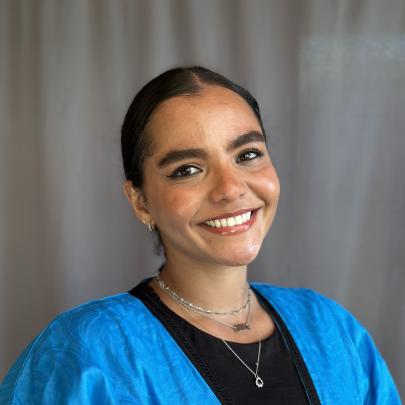
Yasmina is an award-winning feminist activist, consultant and women's empowerment coach dedicated to advancing gender equality and promoting women's rights. As the founder of Politics4Her, she advocates for increased political participation and representation for young women and girls from Global Majority countries. She focuses on climate justice, forced migration, gender-based violence and peacebuilding.
Recognized for her impactful work, Yasmina has been featured on international platforms such as HuffPost, Al Jazeera, BBC and more. She has spoken at prestigious institutions, including the United Nations. Yasmina's achievements include being named as one of BBC’s 100 Most Influential and Inspiring Women of 2023, Forbes' 30 Under 30, MADRE Champion, and Top 100 Under 40 Most Influential People of African Descent 2024. She has been recognized as a UN Women Peace-builder in the Arab States.
With 10 years of experience collaborating with different stakeholders, Yasmina contributes her expertise as an advisor and board member to various institutions.
